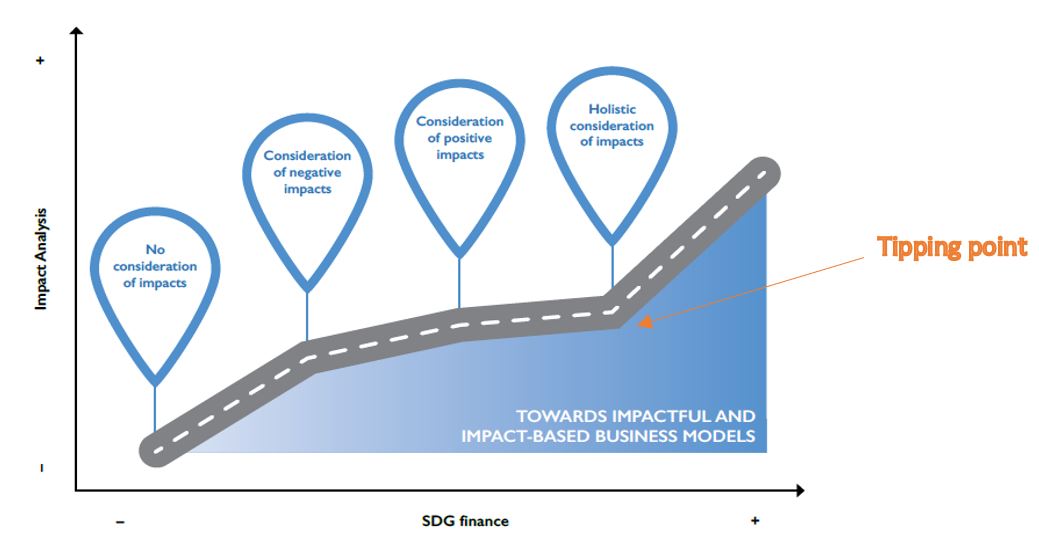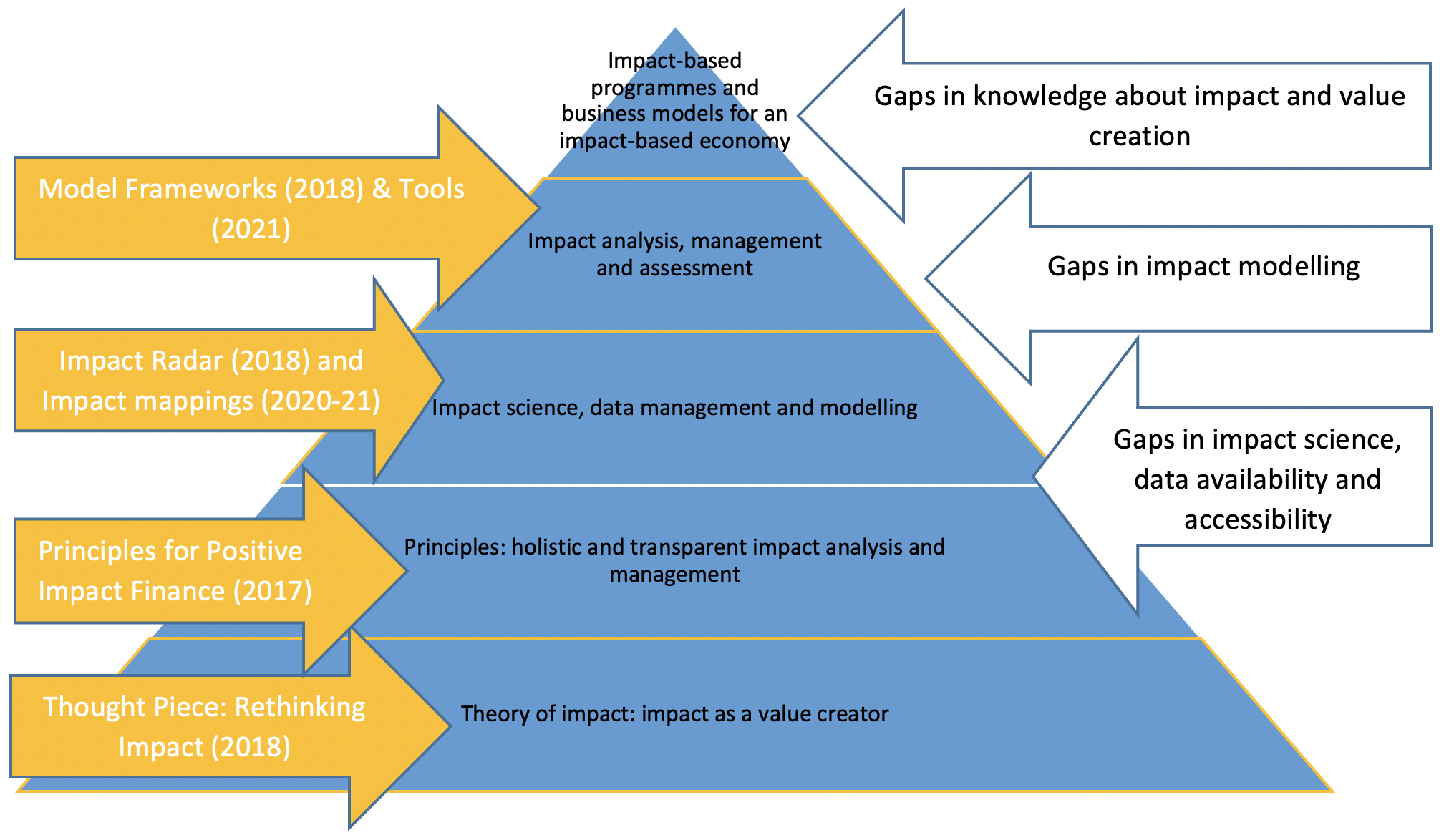The vision of the PI Initiative is an impact-based economy. This is an economy that delivers solutions for impact needs (economic, social and environmental) based on the direct financial value of those impacts. Such impact-based solutions optimize the ratio between the cost of investment versus impacts achieved. They will be powered by the 4th industrial revolution.
In this impact based economy the delivery of positive impacts drives the business model and creates the financial value. In such impact-based business models, impacts are no longer externalities. In fact, the more positive impact is delivered, the more cash flow and revenue is generated. The two are therefore directly linked.
The belief of the PI Initiative is that only an impact-based economy can deliver on the SDGs (see Rethinking Impact). As per the diagramme below, the journey towards and impact-based economy is not linear but disruptive. The role of the PI Initiative is to promote and contribute to a research and development agenda that will build-up the ecosystem and body of knowledge necessary to reach the tipping point in this journey.

Note: It is not implied by the above that all business models will be impact-based; these will cohabitate with ‘traditional’ business models, where the focus will be on managing negative impacts and maximizing positive impacts.
Towards an impact-based economy
The emergence of an impact-based economy, starting from the adoption of a global theory of impact that identifies impact as a value creator, requires the definition and observance of general principles of practice for holistic and transparent impact analysis and management, which in turn is reliant on reliable impact science and appropriate data management, followed by impact modelling – all of which, ultimately, enable the set-up of impact-based programmes and business models.
There are multiple challenges and gaps to achieve the transition to an impact-based economy and the mainstreaming of impact-based business and financing models:
- Impact science & impact data management. Further refinement of our understanding of impact areas and organizing ourselves to enable proper collection and distribution of impact data is foundational – without this, the development of impact-based activity cannot proceed. However, as of yet, there are many gaps in data availability as well as in data accessibility by stakeholders.
- Impact modeling for impact analysis and management. Once the ‘raw materials” and “systems’ are in place, models are necessary to bring this data to life, to make the data useable. Understanding interrelations between impacts and having the ability to project impact scenarios is as yet in its infancy.
- Impact value chains and impact-based business models. The final layer is the interpretation and translation of impact knowledge into business. For this understanding the links between impacts and value creation and establishing the value chains of impact is key.
The figure below shows the building blocks for an impact-based economy, the main challenges and gaps to achieve this, and the PII’s contributions to-date.



